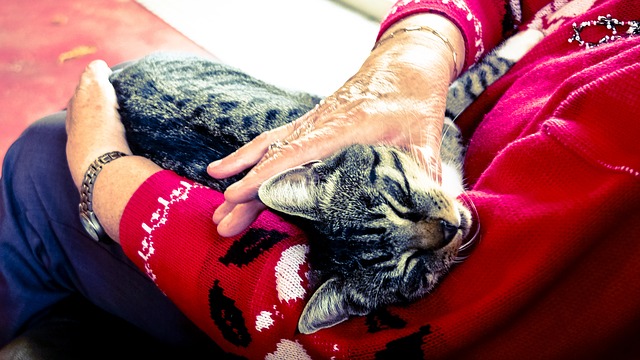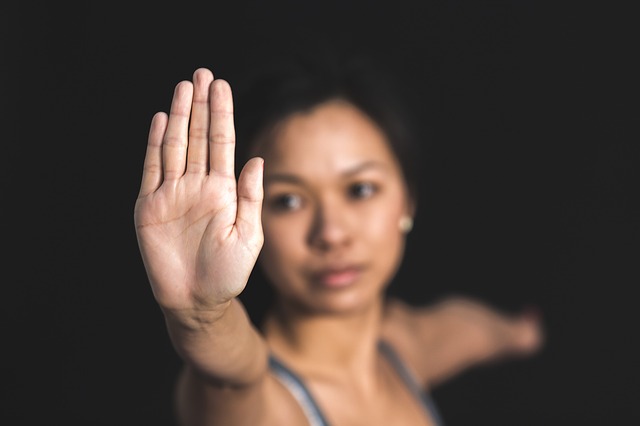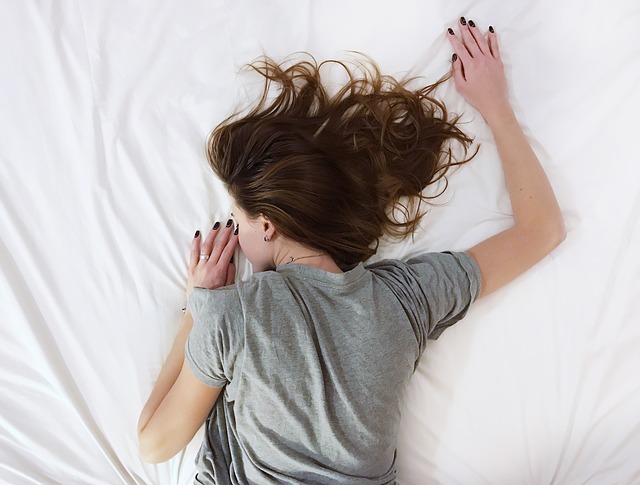Blog
Birth Control Pill and Pregnancy: Your Questions Answered
Things to know about the pill and pregnancy
- If you get pregnant while birth control, stop taking the pill immediately.
- If you haven’t had your period for 3 months after quitting birth control, it is worth talking to your Ob/Gyn.
- It is generally recommended that you use a barrier method and allow for a few cycles of normal periods before trying to conceive.
Staying on top of your reproductive health with the help of Ahkami Medical Group
At our office in Passaic, we are dedicated to your reproductive health, including the healthy transition from birth control to conception. If you are interested in quitting your birth control pill for any reason, give our office a call to schedule an appointment today. We will make sure that you leave our office with all questions answered and a clear path forward after quitting the pill.
Pregnancy and Sleep Make for a Rocky Relationship
Tips for sleeping while pregnant
- Exercise, but not right before bed! Movement influences circulation, which is necessary for rest, but exercise also releases adrenaline that can make it difficult to sleep.
- Drink plenty of fluids throughout the day, but not in the hour leading up to bed: this will help prevent the frequency of waking up in order to urinate.
- At the 20 week mark, begin sleeping on your left side. Further tip: support your body while sleeping with a pregnancy body pillow.
- Nap if you need to: if you can’t find the rest you need at night, try taking a nap when you feel tired during the day time.
- Establish consistency: routine helps many people find better sleep.
Pregnancy sleep assistance in Passaic
Sleep is a cornerstone of wellness, and never more so than during pregnancy. It is our duty to do everything in our power to help you find the rest you need to maintain your vitality in order to influence the greatest possible chance of a successful, complication-free delivery. If you are interested in finding out more about our services for pregnancy-related insomnia, give our office in Passaic a call to schedule an appointment today.
What is the Link? Women and Insomnia
Why are women more likely to have insomnia than men?
Women are more likely to suffer from insomnia because of hormonal changes during the menstrual cycle; furthermore, hormonal changes associated with menopause are likely to increase your chance of suffering from insomnia with age. Other conditions that cause insomnia which are more common in women include:
- Pregnancy
- Depression
- Anxiety
- Fibromyalgia
These medical conditions cause secondary insomnia, meaning that your insomnia is actually a side-effect of a different condition; therefore, it is different from primary insomnia, which is its own condition.
What to do about insomnia in Passaic
At Ahkami Medical Group, we recognize the importance of sleep as a cornerstone of wellness. We will do everything in our power to help you sleep better: once you have a diagnosis of primary or secondary insomnia, there are several avenues of treatment available to you. If there is a particular health problem causing your secondary insomnia, we want to detect and set a course to treat that condition first. From here, we offer counseling on lifestyle adjustments which affect your ability to fall and stay asleep, as well as natural methods for finding sleep more easily. We also offer access to sleep-aiding medication if deemed appropriate and can provide referrals to cognitive specialists who provide cognitive behavioral therapy that can help change the way you sleep.
We take into account every detail of the spectrum that contributes to your sleep health, and put together a multi-dimensional plan that will help you find the restful sleep you need in your busy world. If you are interested in getting the sleep you need to function your best, give our office in Passaic a call to schedule an appointment today.
Healthy Aging for Women Starts with Awareness
What women can do to promote healthy aging
It’s never too early, nor too late, to start making changes in your lifestyle to account for your health. Here are some of the easiest and fastest ways you can make changes:
- Diet: switch to healthy fats and minimize sugar consumption.
- Exercise: as many as 80% of elderly women struggle with inactivity. We can help you get creative with your physical activity.
- Focus on mental health: many elderly women suffer with depression. We can help you find strategies for minimizing anxiety
- Minimize use of alcohol, tobacco and drugs
What we can do to help promote healthy aging in women
At our office in Passaic, we specialize in women’s preventative healthcare. We provide the following services and screenings to help you keep one step ahead of potential health risks:
- Blood pressure and cholesterol screenings for heart health
- Bone mineral density test
- Thyroid test
- Mammograms and clinical breast exams
- Colorectal exams and diabetes screening
- A full range of reproductive health screenings
We want to help you account for your unique health profile so that you are fully in control of your life as you move forward in age. If you are interested in using our services to promote a healthy aging process, give our office a call to schedule an appointment today.
The Importance of Bone Density in Women
Why are strong bones so important?
Osteoporosis means, “porous bone,” and the change in structure of bone material is a primary cause for injury and broken bones in elderly populations. This is a serious condition that has the capacity to cause disability and permanent pain. One way to live a healthier, more independent life in old age is to maintain strong bones; at our office in Passaic, we want to help women maintain their bone strength so that they can keep in touch with an active lifestyle, no matter their age.
How we help at Ahkami Medical Group
We begin with a bone mineral density (BMD) test, which compares your bone mass to that of someone with healthy bone density of the same age and sex. At Ahkami Medical Group, we treat osteoporosis by mitigating bone loss through diet and medication, strengthening muscles and focusing on musculoskeletal balance to prevent the kind of lapses in movement that lead to broken bones. If you are interested in using our services to prevent bone loss and stay healthy despite potential bone loss, give our office in Passaic a call to schedule an appointment today.
Cellulite: Cutting Through the Nonsense
What exactly is cellulite?
Cellulite is not just unsightly chunks of fat. It is a more complex physiological condition that often results from a combination of factors including hormones and heredity. What’s more, it is thought to affect over 90% of women in the United States at some point in their lifetime. So the first step to overcoming your frustration, and improving your life with cellulite, is to take a deep breath and realize you are not alone.
In normal, some might say, “smooth,” skin, fibrous strands form compartments under the skin that contain fat cells. With cellulite, this subcutaneous fat, as well as lymphatic material, herniates and comes to the surface, while the fibrous strands form indents; the final result is the dimpled appearance most often found on the thighs, hips and pelvic area.
How we treat cellulite at Ahkami Medical Group
Cellulite most often gets worse with age, as hormones change the structure of skin collagen. But you don’t have to accept cellulite as a bygone conclusion: there are many treatment options available to you, and studies show that non-invasive procedures are effective at lowering the grade of your cellulite. We offer counseling on cellulite with the objective of educating you on the condition and how you can use lifestyle decisions to manage its presence. Treatments include:
- Counseling on diet and exercise and the cessation of smoking
- Laser treatment
- Dermal fillers to even out dimples
If you are interested in finding out more about how you can downgrade the severity of your cellulite, give our office in Passaic a call to schedule an appointment today.
Understanding Heart Health Risk Factors for Women
Heart disease is the leading cause of death for women in the United States. As such, it is crucial for women to understand the risk factors for heart disease in order to take proactive measures to protect their heart health. Some of the most common risk factors for heart disease in women include high blood pressure, high cholesterol, smoking, diabetes, family history, obesity, and physical inactivity. By understanding these risk factors, women can take steps to reduce their risk of heart disease and improve their overall health and well-being.
High blood pressure is one of the most significant risk factors for heart disease in women. High blood pressure can damage the arteries and make the heart work harder, leading to an increased risk of heart attack, stroke, and other heart-related problems. Women can help reduce their risk of high blood pressure by maintaining a healthy weight, getting regular exercise, reducing salt intake, and avoiding excessive alcohol consumption.
High cholesterol is another significant risk factor for heart disease in women. When too much cholesterol builds up in the arteries, it can restrict blood flow to the heart and increase the risk of heart attack or stroke. Women can help reduce their risk of high cholesterol by eating a healthy diet that is low in saturated and trans fats and high in fiber, as well as getting regular exercise and not smoking.
Smoking is another significant risk factor for heart disease in women. Smoking damages the blood vessels and increases the risk of blood clots, which can lead to heart attack or stroke. Women who smoke should quit as soon as possible to reduce their risk of heart disease and other health problems.
Finally, physical inactivity and obesity are also significant risk factors for heart disease in women. A sedentary lifestyle and excess body weight can increase blood pressure, cholesterol levels, and the risk of diabetes, all of which contribute to an increased risk of heart disease. Women can help reduce their risk of heart disease by getting regular exercise, maintaining a healthy weight, and making healthy food choices.
Hormonal Imbalance and Weight Gain
Boosting progesterone levels naturally
One of the best ways to do this is through diet:
- B-complex vitamins
- Magnesium and zinc
- Focus on soluble fire
- Reduce alcohol and caffeine intake
Another is to increase your frequency of aerobic exercise and work on stress reduction techniques. Stress is one of the hardest hitting malefactors when it comes to hormonal balance; keeping a hand on the pulse of your stress is a signal way to maintaining control over your hormones.
How we help you regulate your hormones at Ahkami Medical Group
If you are experiencing weight gain in the abdomen and you think it may be due to hormonal imbalance, it is a good idea to chat with a doctor. Regular testing gives us insight into your hormonal flux, which helps us shape a plan for establishing balance despite the changes of age. If you are interested in finding hormonal balance, maintaining a healthy weight and living your best life, give our office in Passaic a call to schedule an appointment today.
Fitness Myth: The More Gym The Better
One common fitness myth is that the more time you spend in the gym, the better your results will be. However, this is not necessarily true. While it’s important to exercise regularly and consistently, spending excessive amounts of time at the gym can actually be counterproductive. Overtraining can lead to injuries, burnout, and decreased performance. It’s important to find a balance between exercise and recovery in order to see optimal results.
Another factor to consider is the quality of your workouts, not just the quantity. It’s possible to get a highly effective workout in just 30 minutes, as long as you’re working at a high intensity and challenging yourself. It’s important to focus on exercises that target multiple muscle groups and increase your heart rate, such as squats, lunges, and burpees. This will help you maximize the efficiency of your workouts and see better results in less time.
Finally, it’s important to remember that fitness is not just about the gym. While going to the gym is a great way to get exercise, there are many other activities that can help you stay fit and healthy. Outdoor activities such as hiking, biking, and swimming are great ways to get cardiovascular exercise and enjoy the outdoors. Yoga and Pilates can help improve flexibility and core strength. And even household chores such as cleaning and gardening can help you stay active throughout the day. By finding activities you enjoy and incorporating them into your routine, you can maintain a healthy and active lifestyle without spending all your time in the gym.
Women Sleep Worse than Men, But Why?
What happens when you don’t get the sleep you need?
Part of this must be biological right? Yes- a woman’s biological clock is wired slightly differently in that her circadian rhythm is about 6 minutes shorter than that of a man’s. Women tend to sleep worse during their period due to factors such as cramps and hormonal changes. But no matter what the reason, sleeplessness in females causes a host of problems including:
- Stress (which contributes to fatigue and sleeplessness itself)
- Diabetes and weight gain
- Hypertension
- Cardiovascular disease
How can we help at Ahkami Medical Group
Sleeplessness is associated with a lower quality of life. Not getting the sleep you need means that your body is unable to recharge its systems, cells cannot repair and rebuild; furthermore, you are less likely to prosper the following day with significantly decreased energy levels. If you are not getting the sleep you need, it is worth asking why? We can help you troubleshoot and provide you with the information you need to gain a grasp on your sleeplessness. From here, we can move forward with a multi-dimensional treatment plan that will help you fall and stay asleep.









